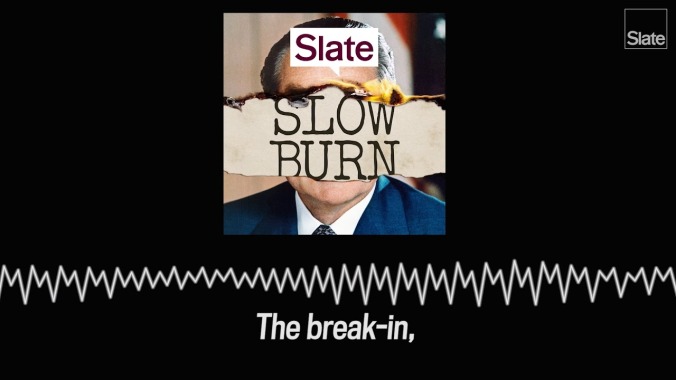A Watergate podcast that’s as much about the past as it is the present

Even when considered only at surface value, Slate’s Slow Burn podcast is a great idea. Hosted and masterminded by reporter Leon Neyfakh, it’s a miniseries that dives deep into Watergate, using audio clips from the era and new interviews with relevant parties to pick apart the scandal and the way it unfolded in the public eye. The value of revisiting this story in today’s political climate is obvious, but it’s the show’s focus on the experience of living through something as unimaginable as the collapse of a corrupt presidency that takes its relevance and potency to a whole other level. The thing that’s struck me hardest is its ability to show just how deeply the links run between the Nixon and Trump administrations. Yes, both men were paranoiacs obsessed with loyalty and revenge, and both allegedly obstructed justice to cover up illegal and/or underhanded campaign tactics. But Slow Burn illuminates fascinating layers of the Watergate story that are less talked about and even more alarming in the face of the Trump scandals.
